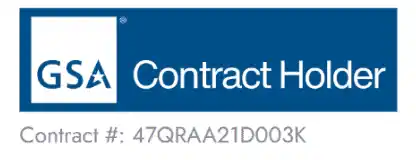If you recently purchased your first home, you may not be aware of all the home tax deductions. In fact, tax benefits are often a prime reason for buying a home, either for personal use or to generate rental income. If this is your first time figuring the tax benefits of a new home, be sure to gather the following documents before completing this article. The topics we discuss concerning home tax deductions are better understood within the context of the tax documents in question.
Gather the following basic information before you prepare your tax return:
- Closing statements if you bought or sold your home during the previous tax year
- Form 1098, Mortgage Interest Statement, if you have mortgage interest
- Mortgage Amortization Schedule. This shows the interest and principal you paid on the loan.
- Tax returns for any year you took the Homebuyer Credit.
- Records of points you are amortizing over a period of years.
- A detailed list of home office expenses, if you are claiming any.
- The amount you paid for the home, plus any improvements if you sold your home or you use it for business.
- Property tax statements or receipts, if not paid through your mortgage company.
Major Home Tax Deductions
To ensure you get the full amount of home tax deductions allowed by law, you need to be familiar with some of the most common home-related expenses. These expenses are monies you have paid to facilitate the purchase, make necessary renovations, or use the home to operate a business. The most common home tax deductions are explained below.
Mortgage Interest Expense
If the debt is secured by the home, in most cases you may deduct the amount of mortgage loan interest you paid during the tax year in question. This amount will be shown on Form 1098, Mortgage Interest Statement, you should receive from your bank or other lender. Some basic rules apply.
- If you paid less than $600 in interest, or you paid interest to someone other than a bank or approved lending institution, you will not receive a Form 1098. However, you may still be able to deduct home mortgage interest.
- If your home loan exceeds $1 million, you may not be able to deduct the full amount of your mortgage interest. (If married but filing separately from your spouse, the amount is $500,000).
- Special rules apply if your home loan was generated before October 14, 1987.
Home Equity Loan Interest Expense
A home equity loan is a loan against the equity you have built up in your home. It is an additional loan that exceeds the balance on the loan used to build or purchase your home. You can also incur home equity debt by refinancing your original home loan for more than the balance owed. The amount of the loan that exceeds the original purchase loan is home equity debt.
In most cases, the IRS allows you to deduct the interest on home equity debt regardless of how the money is spent. However, there are limitations on the amount of debt that can be treated as home equity debt. It cannot be over $100,000 greater than your acquisition debt (the limit is $50,000 if you are married but filing separate tax returns). It also cannot be greater than the difference between the fair market value of your home and the balance on your original acquisition debt. For more information see IRS Publication 936 (2016) Home Mortgage Interest Deduction and click the link for Home Equity Debt.
Home Improvements & Maintenance
Improvements such as a new porch, roof, room, or other major remodeling project can increase the value, or basis, of your home. While they are no longer directly tax deductible, it is wise to record all expenses for these home upgrades. They become necessary later when figuring taxable gains if selling your home, or for figuring depreciation if renting your home. For more information see IRS Publication 530, Tax Information for Homeowners.
Unless you used your home for business purposes or as a rental during the tax year in question, you cannot deduct maintenance costs such as painting, lawn care, repairing leaks, or cleaning.
Real Estate Taxes
Real estate tax is an annual tax levied by most state and local governments based on the value of real property. You can deduct all real estate taxes with other itemized deductions. Most real estate taxes are paid through your mortgage lender. This amount will be shown on Form 1098, Mortgage Interest Statement. If you only own the property part of the tax year, you only owe real estate tax for that part of the year. Therefore, only that portion of the yearly real estate tax is deductible.
Home Office Expenses
If you used part of your home for your business, you can take a home tax deduction for your expenses. Direct expenses can be completely deducted, as well as a portion of expenses that benefit the entire house, such as electricity, gas, water, and the like.
There are two methods for calculating home office deductions. To use the regular method, calculate the number of square feet in the home used for your business, and the total number of square feet in the home. You will also need to record your home expenses such as mortgage interest, real estate taxes, home repairs, utilities, insurance, security, and depreciation. A percentage of these are deductible using a formula relating to the amount of square feet used as office space for your business.
To use the simple method, you can deduct $5 for each square foot of office space used in your home, with a maximum of 300 square feet, subject to certain limitations. For more information see IRS Publication 587, Business Use of Your Home.
Late Payment Charges
If your mortgage lender levies a late payment fee, this fee is deductible as additional mortgage interest. Fees charged by the lender for specific services are not tax deductible.
Common Questions Regarding Home Tax Deductions
Can I deduct back real estate taxes I paid when I bought my home?
No. Delinquent, or “back”, taxes are taxes that were imposed on the seller for an earlier tax year that is still unpaid. If you agree to pay delinquent taxes when buying a home, you cannot deduct them. They are to be treated as part of the cost of the home. IRS Publication 530, Tax Information for Homeowners
Can I move back into my home for two years to avoid paying tax on any gain?
As a general rule, if you sell a house you lived in and owned for two of the last five years, you don’t have to pay tax on the capital gain. Unfortunately, you cannot use the exclusion to avoid paying tax on gains that are due to time periods after 2008 when you or your spouse did not live in the house. You may qualify for an exception if you were away from the house because of military service, or due to unforeseen circumstances such as a job transfer or health problems. For more information see IRS Publication 523, Selling Your Home.
Will I get audited if I claim a home office deduction?
Certain deductions are considered to be “red flags” the IRS chooses to examine more carefully. Traditionally, home office deductions are often thought to be one of these. However, your chance of being audited in any given year are actually about 1%. And there is no conclusive research that any one factor triggers an IRS audit.
Where do I record the sale of my home on my tax return?
The IRS no longer employs a specific form to record the sale of a home. Record the sale on Form 8949, Sales and Other Dispositions of Capital Assets. If you did not receive a Form 1099-S for the sale of your main home, and you do not have a taxable gain, you won’t see the sale anywhere on your return. The IRS does not require you to report it.
How do I determine the amount of gain due to the time I didn’t live in the house?
If you sold a home at a gain, you must pay capital gains tax on the gain that is due to the time you did not live in the house. If you sold your house at a gain, you must pay capital gains tax on the gain that is due to the time you did not live in the house. You must record the number of “unqualified use” days when you did not live in the house. You do not have to count days you served on extended duty for the armed services, the intelligence community, the Foreign Service or any temporary absence due to unforeseen circumstances. For more information see IRS Publication 523, Selling Your Home.





